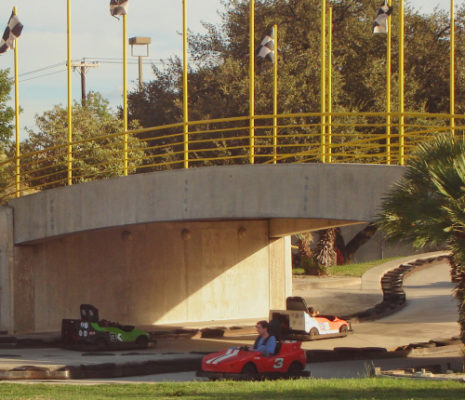GO-KARTING INJURIES: CAN I SUE IF I SIGNED AN INJURY WAIVER?

Go-karts can be an exciting and adventurous experience for your thrill-seeking kid, but they can also be very dangerous. Simply put, a go-kart accident, even with proper safety equipment, rarely results in zero injuries. Below are the types of injuries that typically result from go-kart accidents, listed in order of seriousness:
- Loss of limb, traumatic head or brain injuries, ocular or eye injuries, hip or femur injuries, lacerations, fractures, internal injuries and burns.
- Contusions and abrasions, strains and sprains, hematomas and dislocations.
- Punctures, avulsions, headaches, aches and pains, or hypertension.
As anyone can see, most injuries that come from go-kart accidents, even many of those that are less serious, require medical attention. While go-karting is considered an extreme sport and therefore comes with its associated risks, there is still room to be compensated in the event that a tragic injury occurs.
What Happens If You Signed a Waiver? Can You Sue?
Though the law varies from state to state, it is generally pretty likely that you can get around a signed waiver in the event that a serious, documented go-kart injury occurred. There are two main reasons why a go-kart racing facility will have you sign a waiver:
- To make you aware of the risk you’re taking on the racetrack and in doing so, encourage you to act more safely while racing.
- To deter you from filing a lawsuit in the event that an injury occurs.
The second reason for having you sign the waiver is surprisingly very effective. Most people don’t even bother filing a lawsuit because they assume that the waiver will deter any pursuit of legal action from actually taking place. However, this is not actually the case.
In order for a waiver to be effective and enforceable, it needs to have incorporated two very important details:
- Clear and obvious wording whenever the actual release is stated, making it easy to see. This can be in the form of bold print, all caps or a colored font.
- Language that is easy for the average person to read and understand.
Most often, waivers contain the important details in fine print or heavy wording. While this might give the go-kart racetrack operator some peace of mind, it actually bodes poorly for the business because it opens them up to liability in the event of an injury.
Let’s Talk about Go-Kart Negligence
Regardless of whether or not you signed a waiver, the business has a duty of care to all persons using the go-kart facilities. In some cases, an injury occurs due to some form of negligence. If you suspect this has occurred, the best thing to do is gather evidence around your theory that negligence has indeed occurred.
What types of situations indicate negligence? One common form of negligence is the event in which the driver had a defective go-kart, as it is the facility’s responsibility to maintain its go-karts for the safety of the driver. Sometimes, however, a go-kart is defective because of its design. If this is the case, liability for your child’s injury can reach all the way up to the manufacturer of the product.
Other cases of negligence involve a failure to warn. This means that poor or lack of signage could have caused a driver to misinterpret the severity of a sharp turn, leading them to crash. Lastly, improper maintenance could have caused a roadblock in the racetrack that led drivers to crash as well.
Consider Taking Legal Action
If you suspect negligence was a factor in your child’s go-kart injury, your next step should be to gather evidence. If you can get a video of the incident, that would be invaluable as evidence. If not, however, you might be able to build a case with eyewitness accounts.
Go-kart accidents are no laughing matter and often result in very serious injuries. If you or your child has suffered injury from a go-kart accident, don’t let a waiver intimidate you out of filing a lawsuit. Holding someone liable for you or your child’s injuries can significantly help by providing compensation for medical bills, physical and emotional suffering and expenses on the road to recovery.
*Image courtesy of TheMuuj
